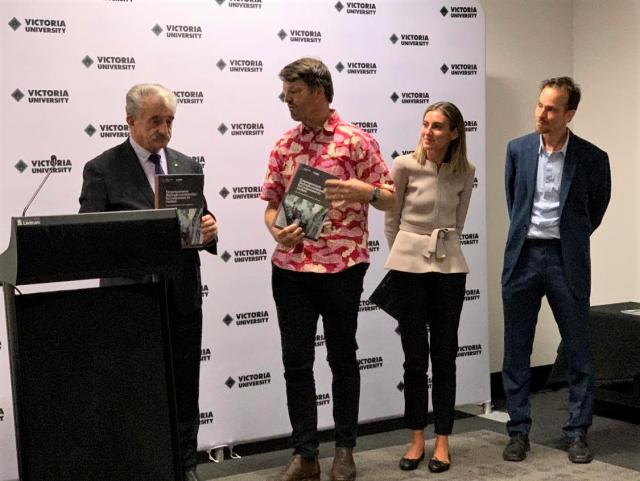A new Victoria University report offering a practical step-by-step guide to improve reporting and support services for people who have experienced racism will be available to local governments across Australia.
Today, Victoria University together with Welcoming Cities – a national network of towns and cities commited to creating communities of belonging – launch a joint report Empowerment Through Community-led Response to Racism.
This resource outlines how local governments and service providers can work together with Aboriginal and Torres Strait Islander, and multicultural and multi-faith communities to strengthen community empowerment and improve reporting and support services for those affected by racism.
The report follows a recent Australian-first pilot project with the City of Wyndham in Melbourne’s southwest – one of Australia’s fastest growing and most culturally diverse municipalities.
For the pilot project, VU researchers Dr Mario Peucker, Professor Tom Clark, and Ms Holly Claridge developed a ‘Wyndham roadmap’ toward improved reporting and support services tailored to specific needs of local communities, leading to the establishment of the community-led Wyndham Anti-Racism Support Network.
Drawing on the Wyndham project, the VU researchers have worked with Welcoming Cities to develop a practical guide that can assist other local governments to implement similar programs in their areas.
The new guide outlines a six-step process that includes detailing an area’s community demographic profile, engaging with local service providers and community organisations, and examining the experiences and support needs of community members affected by racism.
Community input key to reporting pathways and responsive support services
Chief Investigator Dr Peucker said the pilot study found a support network that takes into account the specific needs of local residents and builds on existing community structures “can break the often-silencing effects of racism and empower people to speak about their experiences and get the support they deserve.”
“The only way this could be achieved is with a strong place-based approach and genuine dedication to centring the voices of local communities. We hope this new resource will encourage other local governments to provide responsive and accessible support to residents affected by racism.”
Professor Clark said strengthening, empowering and connecting diverse community groups was critical.
“Sharing experiences of racism across different communities helped many participants overcome the silencing effect of everyday racism, microaggressions and systemic racism,” he said.
Welcoming Australia CEO Aleem Ali said “locally-led community initiatives like this can play a key role in helping to address and reduce racism. We are pleased to share this report with our members across the country, and support them to facilitate anti-racism initiatives in their communities.”
The report is sponsored by Scanlon Foundation, a philanthropic organisation that supports the advancement of social cohesion in Australia.

















